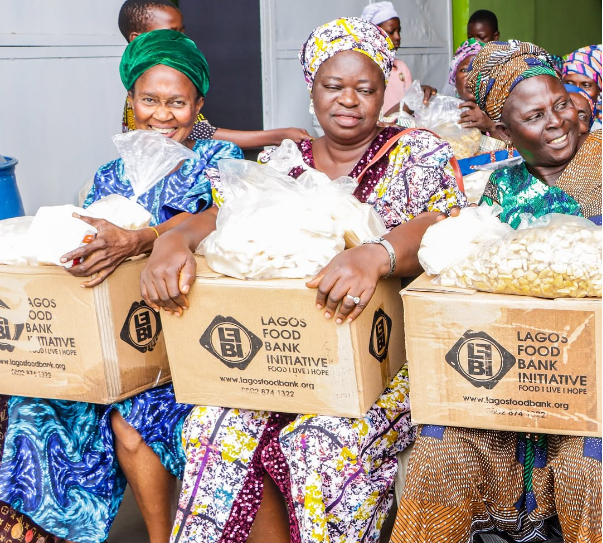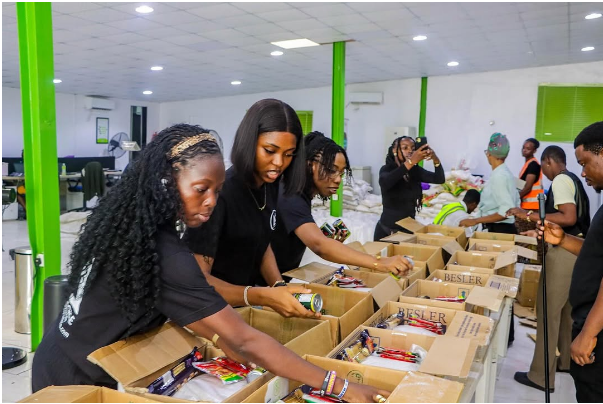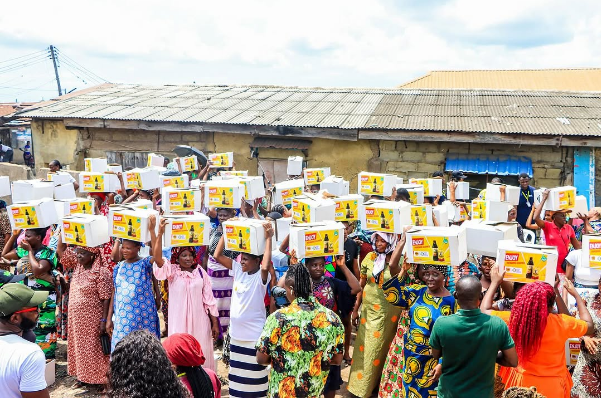Nigeria, often considered the food basket of West Africa, continues to grapple with significant challenges around food preservation and security. Over the years, minimal adoption of advanced preservation technologies, shortages of modern storage infrastructure, and limited access to thriving markets have contributed to substantial post-harvest food losses. These challenges are further compounded by pervasive gaps in agricultural knowledge among farmers, resulting in a situation where vast quantities of produce never reach consumers’ tables—nor neighbouring export markets.
An in-depth four-part investigation by PREMIUM TIMES recently underscored these systemic problems, shining a light on how poor post-harvest handling of Nigerian staple crops and a lack of targeted government intervention drive persistent food insecurity. The investigative series did not only document the consequences, it also outlined practical steps to address the situation.

In a recent interview with PREMIUM TIMES, Michael Sunbola, who serves as founder and executive director of the Lagos Food Bank Initiative (LFBI), shared insights into how the non-profit is tackling these deep-rooted challenges. He spoke about the work being done to reduce Nigeria’s alarming rate of food wastage—a major factor behind stubbornly high hunger and malnutrition rates that affect millions nationwide.
Below are highlights from the conversation:
From Childhood Hunger to Community Action
Mr Sunbola recounted that in 2016, as Nigeria faced its first recession in over 20 years due to plummeting oil prices and foreign exchange shortages, many of the country’s most vulnerable—children, widows, the elderly, and indigent families—found themselves in the grip of worsening poverty and food scarcity. “I experienced hunger as a child, going to school or bed without a meal,” he revealed. This personal connection prompted him and a team of volunteers to distribute basic support—mainly food and personal care items—to those hit hardest by shifting economic realities.
The organisation rolled out several targeted programmes, beginning with a Food Rescue initiative. Working in partnership with food producers, logistics firms, and market associations, LFBI recovers surplus, unclaimed, or soon-to-expire foods and swiftly redistributes them to families needing immediate relief. Additionally, their Agricultural Recovery efforts focus on collecting excess harvest from local farmers, preventing these products from spoiling—often simply for lack of adequate storage facilities—and ensuring more food reaches communities in need.
Another impactful programme, the Nutritious Meal Plan Intervention for Vulnerable Mothers and Children (NUMEPLAN), is designed to curb malnutrition. NUMEPLAN not only supplies nutritious foods but also offers educational support, teaching undernourished mothers and pregnant women in underserved locales about hygiene, breastfeeding, and meal preparation. “Our aim is holistic—making sure mothers and infants get the nutrients they need for healthy development,” Sunbola explained.
How Surplus Food Is Identified, Handled, and Delivered
LFBI’s process begins with rigorous research to track down sources of surplus food, such as local organisations and farmlands. Sunbola said, “Most partners are happy to share their excess, knowing it would go to waste otherwise.” Transportation is handled with care: food is moved in cooling vans to maintain freshness, ferried either to storage facilities or straight into rural and urban communities.
Ensuring quality and safety is a top priority. “Our staff undergo continuous training—currently in partnership with the Global Foodbanking Network—to align with strict food safety standards,” Sunbola stated. The organisation’s Nutrition Procurement Policy adheres to the National Policy for Food and Nutrition in Nigeria, and Sunbola affirmed that their “highly trained team knows exactly what to look for when recovering surplus food, ensuring recipients receive only safe, nutritious products.”
Engagement and Outreach in Local Communities
LFBI doesn’t work in isolation; active research and ground-level outreach are central to their approach. Staff and volunteers routinely register beneficiaries across Lagos and beyond, focusing on household income, family size, and occupational details to target support where the need is greatest. “We’ve partnered with over 30 primary healthcare centres (PHCs) in Lagos, and vulnerable mothers often come directly to register for initiatives like NUMEPLAN,” Sunbola shared. Community awareness campaigns and partnerships with schools and health centres help LFBI reach even those most hidden from view.

Extending Impact Through Strategic Partnerships
Collaborative efforts underpin much of LFBI’s reach. The group has joined forces with approximately 500 local and international organisations across Nigeria over the past nine years, impacting nearly three million beneficiaries. Through the Food Bank Network Nigeria programme, they work with more than 150 non-governmental organisations to bring food assistance into difficult-to-access regions. Also, their EduFood programme now supports children in low-cost schools—crucially, helping kids whose families cannot afford regular, nutritious meals.
Tracking Progress and Lessons Learned
In 2023 alone, LFBI delivered more than 550,000 meals and supported over 1,300 mothers and their babies via the NUMEPLAN initiative. The Food Rescue programme succeeded in diverting over 2,200kg of would-be wasted food to more than 4,000 urgent-need recipients. “Each year, our annual report highlights the quantities distributed, number of people helped, and impact on nutrition in these communities,” said Sunbola. Key performance indicators include improved nutritional status and clear reductions in local malnutrition rates, as well as the amount of surplus produce diverted from waste streams.
“It’s not just about filling bellies for a day,” one LFBI volunteer explained, “but about laying the groundwork for long-term health and resilience.”
Towards Sustainable Change—Beyond Emergency Relief
LFBI’s approach is increasingly holistic. The Family Farming programme, for instance, provides hands-on urban agriculture training, focusing on poultry, vegetables, and snails. Beneficiaries learn to cultivate their own food, reduce their dependence on charity, and create extra income streams through sales. Resources like cages, seedlings, and starter kits are provided. LFBI also offers job placement support to help young people and vulnerable adults escape cycles of poverty.
Meanwhile, EduFood continues to supply healthy meals twice a week in selected partner schools in disadvantaged districts, directly improving concentration, attendance, and academic performance. “This simple support inspires parents to prioritise education while freeing up finances for other basic needs,” said LFBI staff.

Malnutrition, especially among mothers and children under age five, remains a major concern. According to UNICEF, an estimated two million Nigerian children suffer from severe acute malnutrition each year, and thousands of preventable deaths are reported annually. LFBI’s NUMEPLAN programme is intended to address exactly this issue by combining nutrition education with direct food support, empowering families while fostering community health.
National Expansion and the Challenge Ahead
LFBI has begun scaling up with the launch of a new permanent warehouse in Ikeja. This facility is expected to serve as a distribution hub for a broader network, helping to reach new urban and rural communities. “With the support of our NGO partners nationwide, our goal is to replicate this model across Nigeria,” said Sunbola. He acknowledged, however, that long-term success hinges on continued collaboration, investment in technology and storage facilities, and official policy support to address gaps in the food value chain.
Nigeria’s struggle with food loss and nutrition is not unique—food wastage is a growing concern across West Africa and the continent at large. But solutions developed locally may serve as scalable blueprints for others facing similar challenges, especially as climate change, population growth, and urbanisation increase the pressure on food systems. According to the African Union, addressing post-harvest loss could boost regional food security, generate jobs, and enhance cross-border trade.
In conclusion, while the path to zero hunger remains a long journey for Nigeria and its neighbours, initiatives like those of LFBI demonstrate that community-led action and innovative partnerships can move the continent closer to lasting food security.
What other strategies can Nigeria adopt to tackle food wastage and hunger? Should the government or private sector take the lead, or is it a shared responsibility? Share your thoughts below, drop a comment, and follow us for more in-depth coverage of issues that matter.
For general support or media inquiries, contact us at support@nowahalazone.com.
Connect with us for daily updates, inspiring community stories, and practical tips: Facebook, X (Twitter), and Instagram.
Let’s drive positive change together!










